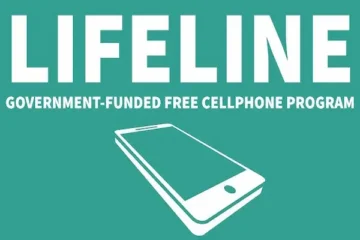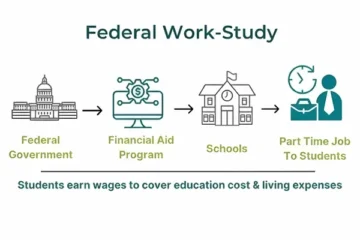How to Save Money Fast on a Low Income
Learn how to save money fast even on a low income with proven tips, daily habits, and free resources that really work.
Advertising
Why Anyone Can Save Money Fast—Even on a Low Income
Many people believe saving money is only possible for those who earn a lot.
But the truth is: you don’t need to be rich to save fast—you just need to be smart with what you have.
Living on a low income doesn’t mean you’re stuck.
It means you have to make every dollar count—and that’s where the real power lies.
Because when you gain control of your money, no matter how little, you gain control of your life.
Let’s go step-by-step so you can save money fast starting today.
Track Every Dollar to Understand Where Your Money Goes
The first tip might sound simple—but it’s powerful.
Track every single dollar you spend.
This means:
- Snacks.
- Phone credit.
- Uber rides.
- Streaming apps.
Every little expense adds up fast—and once you see where your money goes, you’ll know where to cut.
You can use free apps like Spendee, Monefy, or even a notebook.
This habit gives you control.
Because what you track, you can fix.
And that’s your first step toward saving money fast.

Set Realistic and Clear Saving Goals
Let’s be honest: “I want to save” is too vague.
Your brain needs a reason to focus.
So instead of saying “I want to save money”, say:
“I want to save $300 for emergencies.”
Or: “I want to save $150 for Christmas.”
Goals give your actions meaning.
They motivate you to say no to wasteful spending.
And the more specific the goal, the easier it is to achieve it.
You can even break it down.
Save $10 a week?
That’s $520 a year.
Yes—you can do it.
Use the Envelope System to Create a Simple Spending Plan
Budgeting doesn’t have to be hard.
One of the easiest ways to organize your money is the cash envelope system.
Here’s how it works:
Withdraw your weekly or monthly cash.
Divide it into envelopes labeled:
- Food
- Transport
- Bills
- Fun
When the envelope is empty—you stop spending.
It’s that simple.
It forces you to live within your limits.
And it helps you save money fast without needing spreadsheets or complicated tools.
Cut Down the Three Biggest Expenses: Rent, Food, Transport
These three areas usually eat most of your paycheck:
1. Rent
- Can you move to a smaller place?
- Share rent with someone?
- Live with family temporarily?
2. Food
- Plan meals before shopping.
- Buy in bulk when possible.
- Cook at home and bring snacks with you.
3. Transport
- Use public transport.
- Walk or bike if safe.
- Avoid unnecessary rideshare expenses.
Even a 10% reduction in these areas can free up big savings every month.
Cook More and Save on Takeout or Delivery
Fast food is convenient—but expensive.
You pay for the food, packaging, delivery fee, and tips.
Cooking at home saves money—and it’s healthier too.
Here’s a quick tip:
Cook larger meals and freeze leftovers.
This saves time and stops you from ordering takeout when you’re tired.
And if you plan meals around weekly store deals, you’ll save even more.
Apps like Mealime or SuperCook can help you use what you already have at home.
Find Free or Cheaper Alternatives for Everyday Expenses
You don’t need to sacrifice comfort—just rethink how you spend.
Swap subscriptions for free versions:
- Use YouTube instead of Netflix.
- Switch to free workout apps.
- Download eBooks or audiobooks from free libraries.
Also:
- Borrow instead of buying tools or equipment.
- Trade services with neighbors (e.g. babysitting for help with groceries).
- Use cashback apps like Rakuten, Dosh, or Shopkick to get money back on purchases.
These small switches help you save money fast without feeling restricted.
Cancel Unused Subscriptions and Negotiate Your Bills
Check your bank statements.
Are you paying for things you don’t use?
Many people forget about:
- Streaming apps
- Magazine subscriptions
- Cloud storage
- Music services
Cancel the ones you don’t really need.
Also, call your internet or phone provider and ask for discounts or cheaper plans.
Many companies have lower-tier offers—they just don’t advertise them.
You have to ask.
And asking can save you hundreds each year.
Sell Things You No Longer Use to Create a Mini Emergency Fund
Take a look around your home.
You’ll probably find:
- Clothes you haven’t worn in months
- Old phones
- Toys your kids outgrew
- Kitchen gadgets collecting dust
All of that can be sold.
Post items on Facebook Marketplace, OLX, or eBay.
You’ll declutter your space and make extra cash fast.
It’s one of the best ways to save money fast—because you’re literally turning stuff into savings.
Start a No-Spend Challenge for One Week or One Month
This challenge is fun, powerful, and completely free.
Choose a week—or even a full month—where you’ll:
- Only spend on essentials (food, bills)
- Say no to extras (snacks, outings, subscriptions)
- Focus on creativity, not consumption
Every day you don’t spend, write down what you saved.
By the end, you’ll be shocked at how much money you kept in your pocket.
You can even turn this into a family game.
Use Prepaid Phone Plans to Avoid Hidden Charges
Postpaid phone plans often come with surprise fees.
Switching to prepaid puts you in control.
You only use what you pay for—no late fees, no surprises.
Plus, many prepaid plans now offer:
- Unlimited WhatsApp
- Free Facebook access
- Data rollover
That means you save more while staying connected.
Automate Savings, Even If It’s Just $1 a Day
Saving manually can be hard.
That’s why automation helps.
Set your bank or app to automatically move $1 a day to your savings account.
By the end of the year?
That’s $365.
You won’t even feel it—but it builds fast.
Use apps like Acorns, Chime, or just your regular banking app to do this easily.
Find Micro-Income Ideas to Boost Your Budget
Sometimes, saving more means earning a little extra.
Here are realistic side hustles you can try without leaving home:
- Sell homemade food or crafts
- Babysit or walk dogs in your neighborhood
- Clean houses on weekends
- Do simple tasks online (surveys, reviews)
Even $20 a week adds up to $80/month.
And that money can go straight to savings—or help pay off bills.
Avoid Payday Loans and High-Interest Traps
When you’re tight on cash, payday loans seem like a quick solution.
But they’re dangerous.
The interest rates are often abusive.
They trap you in cycles of debt.
Instead, try:
- Borrowing from a trusted friend
- Seeking community programs for emergency aid
- Contacting your utility provider for payment plans
Protect your progress.
Debt delays your goals.
Use Free Community Resources to Replace Paid Services
Many people don’t realize what’s available in their area.
Look for:
- Free health clinics
- Job training programs
- Community food drives
- Church donation events
- Free financial counseling from nonprofits
These services exist to help people just like you.
And they can give you the boost you need to save faster.
Limit Impulse Buying with a 24-Hour Rule
Here’s a simple trick to stop wasting money.
When you feel like buying something—wait 24 hours.
Ask yourself:
- Do I really need this?
- Can I find it cheaper elsewhere?
- Will I regret not buying it?
Most of the time, the answer is no.
And you’ll be proud of yourself for walking away.
Create a Visual Tracker to Stay Motivated
Saving can feel slow at times.
That’s why visual progress is so powerful.
Draw a thermometer or chart.
Mark every time you save $5 or $10.
Place it somewhere visible: fridge, wall, notebook.
It reminds you daily of how far you’ve come—and how close you are to your goal.
Turn Saving Into a Family Project
Saving money isn’t a solo mission.
Get your family involved.
Talk openly about your goals.
Make saving a team effort.
Involve your kids with chores, cooking at home, or tracking expenses.
This builds healthy habits—and brings everyone closer.
You Don’t Need to Be Rich to Save—You Just Need a Plan
Being rich helps, but being organized helps more.
You don’t need a high salary to take control of your money.
You need a clear, simple plan that works for your reality.
A plan that starts small, fits your daily life, and respects your limits.
Because when you know where your money goes, you learn how to protect it.
And when you protect it, you start to build something that lasts.
You build peace of mind.
You build security for your family.
You build confidence in yourself.
Saving money fast isn’t about perfection—it’s about persistence.
Even $1 saved today is a win.
Even a small change in your habits brings big rewards over time.
The truth is:
You’ve already taken the first step—you’re here, learning, looking for solutions.
That means you’re ready.
Now take what you’ve learned and apply one tip today.
Then tomorrow, apply another.
With time, those small wins will add up to something powerful.
Something life-changing.
And remember:
You don’t have to be rich to live better.
You just need a plan—and the courage to follow it.





